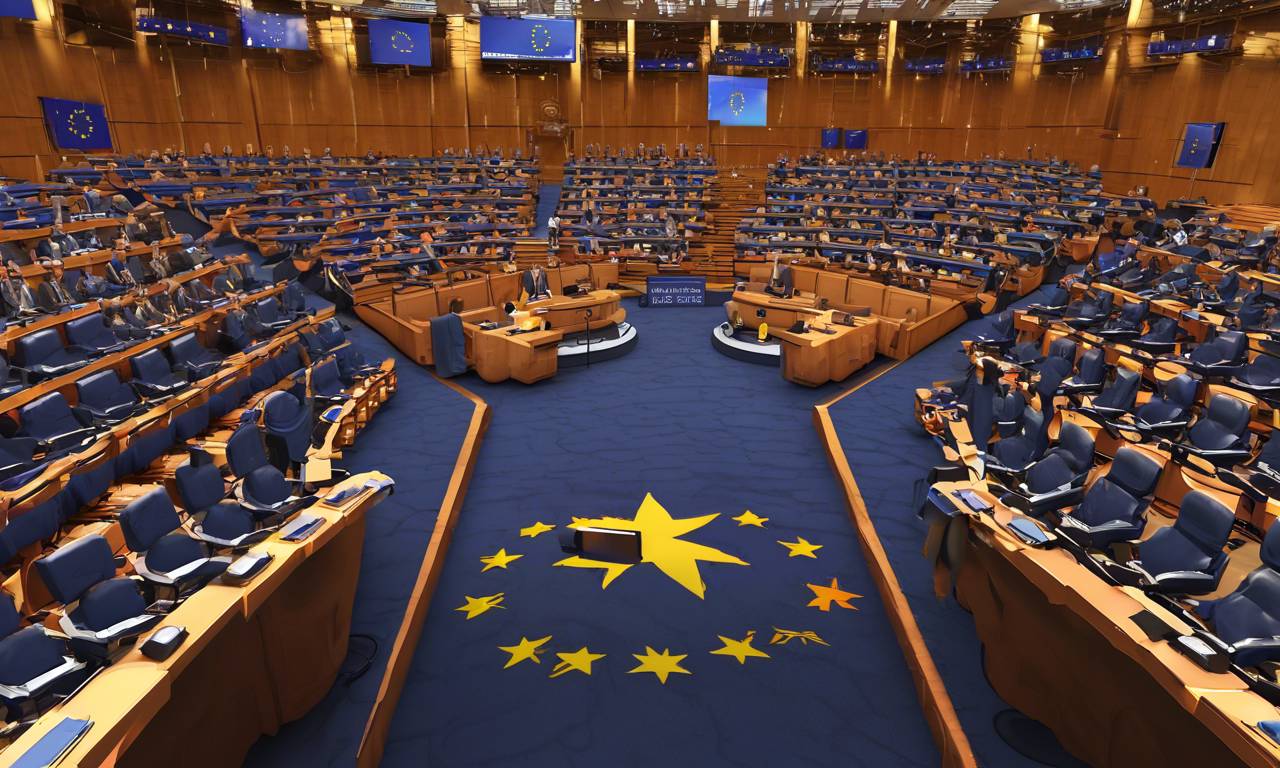The European Parliament Strengthens Sanctions Enforcement Against Cryptocurrencies
To enhance the procedure of sanctions enforcement, the European Parliament has voted in favor of implementing a new set of rules that extend to crypto assets. This legislation aims to standardize the application of sanctions across the European Union’s 27 member states, addressing the existing disparities and closing the loopholes that have affected the effectiveness of EU sanctions.
Economic Sanctions: A Necessary Tool
Economic sanctions are a common tool used by countries and international organizations to enforce compliance with certain rules and regulations. These sanctions can take various forms, such as freezing assets, restricting trade, or imposing travel bans on individuals or entities that violate specific norms or engage in prohibited activities. The goal of economic sanctions is to exert pressure on the target and encourage them to change their behavior or policies.
- Effectiveness of Sanctions:
- Sanctions can be an effective instrument in achieving foreign policy objectives without resorting to military action.
- They can target specific individuals, organizations, or countries and limit their ability to engage in harmful activities.
- Challenges in Sanctions Enforcement:
- Enforcing sanctions effectively requires cooperation and coordination among multiple entities.
- Identifying and addressing loopholes that can be exploited to circumvent sanctions is crucial for their success.
EU Addresses Loopholes In Crypto
On Tuesday, the European Parliament passed a new set of regulations to strengthen enforcement against sanctions breaches, notably including those involving cryptocurrencies. Legislators from the 27 member states of the European Union showed strong support for the measures, with 543 votes in favor, 45 against, and 27 abstentions. This legislative push was motivated by the invasion of Ukraine by Russia and rising worries that the EU’s financial sanctions against Russia were being circumvented.
This initiative seeks to eliminate the inconsistencies that have affected the EU’s efforts to enforce sanctions effectively. Traditionally, while the EU has the authority to adopt sanctions at the European level, the responsibility for enforcing these sanctions falls on individual member states. This arrangement has led to a patchwork of enforcement practices, with significant variations in definitions of sanction violations and associated penalties.
The inconsistency in enforcement has not only made the sanctions less effective but also created opportunities for entities to exploit these gaps, particularly in crypto transactions and asset transfers. By introducing uniform definitions for violations and standardizing enforcement practices, the EU aims to strengthen its stance against those attempting to circumvent sanctions.
This includes measures against not freezing funds, violating travel bans, transferring funds to sanctioned individuals, or engaging in business with state-owned entities of countries under sanction.
EU Continues To Track Illegal Crypto Activities
The inclusion of crypto-assets in the EU sanctions regime aims to adapt to the technological advancements, blocking avenues for sanction evasion. After the European Parliament’s approval, the legislation awaits the Council’s consent.
In 2024’s January, European Union officials agreed tentatively on elements of an extensive regulatory framework to fight money laundering, compelling every cryptocurrency firm to conduct customer due diligence. The Anti-Money Laundering Regulation (AMLR) represents a wide-ranging initiative to thwart sanctions evasion and money laundering, introducing a unified set of rules and establishing a supervisory body with oversight responsibilities for the cryptocurrency industry.
This shows the EU government’s robust approach toward regulating cryptocurrency usage. Although cryptocurrency remains legal within the EU, the authorities are taking steps to ensure that investors operate within a regulated framework and manage their assets with oversight to prevent any illicit activities.
Hot Take: Strengthening Sanctions Against Cryptocurrencies
The European Parliament’s decision to extend sanctions enforcement to include crypto assets marks a significant step in addressing the loopholes that have hindered the effectiveness of EU sanctions. By standardizing definitions of violations and enforcement practices, the EU aims to enhance its ability to prevent sanction evasion and illicit activities involving cryptocurrencies. This move reflects the EU’s commitment to adapting to technological advancements and ensuring that its regulatory framework remains robust and comprehensive in the face of evolving threats.





 By
By
 By
By
 By
By

